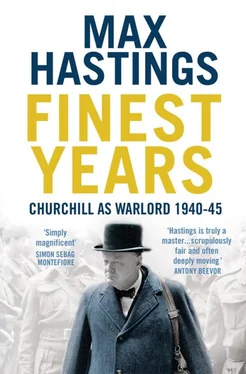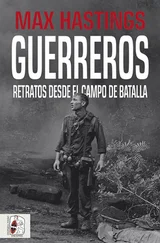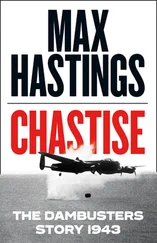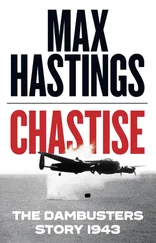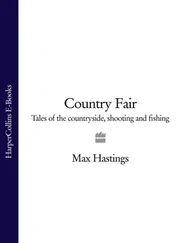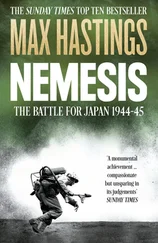This deficiency, of plausible ‘big battlefield’ commanders, would dog British arms throughout the war. Gort was a famously brave officer who had won a VC in World War I, and still carried himself with a boyish enthusiasm. Maj.Gen. John Kennedy, soon to become Director of Military Operations at the War Office, described the BEF’s C-in-C as ‘a fine fighting soldier’—a useful testimonial for a platoon commander. In blunter words, the general lacked brains, as do most men possessed of the suicidal courage necessary to win a Victoria Cross or Medal of Honor. A shrewd American categorised both Gort and the Chief of the Imperial General Staff, Sir Edmund Ironside, as ‘purely physical soldiers who had no business in such high places’. Yet Sir Alan Brooke or Sir Bernard Montgomery would have been no more capable of averting disaster in 1940, with the small forces available to the BEF. Unlike most of Continental Europe, Britain had no peacetime conscription for military service until 1939, and thus no large potential reserves for mobilisation. The army Gort commanded was, in spirit, the imperial constabulary of inter-war years, starved of resources for a generation.
On 14 May, for the first time Churchill glimpsed the immensity of the Allies’ peril. Paul Reynaud, France’s prime minister, telephoned from Paris, reporting the German breakthrough and asking for the immediate dispatch of a further ten RAF fighter squadrons. The chiefs of staff committee and the war cabinet, which met successively at 6 and 7 o’clock, agreed that Britain’s home defences should not be thus weakened. At seven next morning, the 15th, Reynaud telephoned personally to Churchill. The Frenchman spoke emotionally, asserting in English: ‘The battle is lost.’ Churchill urged him to steady himself, pointing out that only a small part of the French army was engaged, while the German spearheads were now far extended and thus should be vulnerable to flank attack.
When Churchill reported the conversation to his political and military chiefs, the question of further air support was raised once more. Churchill was briefly minded to accede to Reynaud’s pleas. But Chamberlain sided with Air Chief Marshal Sir Hugh Dowding, C-in-C of Fighter Command, who passionately demurred. No further fighters were committed. That day Jock Colville, the prime minister’s twenty-five-year-old junior private secretary and an aspiring Pepys, noted in his diary the understated concerns of Maj.Gen. Hastings ‘Pug’ Ismay, chief of staff to Churchill in his capacity as Minister of Defence. Ismay was ‘not too happy about the military situation. He says the French are not fighting properly: they are, he points out, a volatile race and it may take them some time to get into a warlike mood.’
Sluggish perception lagged dreadful reality. Churchill cabled to US president Franklin Roosevelt: ‘I think myself that the battle on land has only just begun, and I should like to see the masses engage. Up to the present, Hitler is working with specialized units in tanks and air.’ He appealed for American aid, and for the first time begged the loan of fifty old destroyers. Washington had already vetoed a request that a British aircraft-carrier should dock at an American port to embark uncrated, battle-ready fighters. This would breach the US Neutrality Act, said the president. So too, he decided, would the dispatch of destroyers.
In France on the 15th, the RAF’s inadequate Battle and Blenheim bombers suffered devastating losses attempting to break the Germans’ Meuse pontoon bridges. A watching Panzer officer wrote: ‘The summer landscape with the quietly flowing river, the light green of the meadows bordered by the darker summits of the more distant heights, spanned by a brilliantly blue sky, is filled with the racket of war…Again and again an enemy aircraft crashes out of the sky, dragging a long black plume of smoke behind it…Occasionally from the falling machines one or two white parachutes release themselves and float slowly to earth.’ The RAF’s sacrifice was anyway too late. Much of the German armour was already across the Meuse, and racing westward.
On the morning of the 16th it was learned in London that the Germans had breached the Maginot Line. The war cabinet agreed to deploy four further fighter squadrons to operate over the battlefield. At 3 o’clock that afternoon the prime minister flew to Paris, accompanied by Ismay and Gen. Sir John Dill, Ironside’s Vice-CIGS. Landing at Le Bourget, for the first time they perceived the desperation of their ally. France’s generals and politicians were waiting upon defeat. As the leaders of the two nations conferred at the Quai d’Orsay, officials burned files in the garden. When Churchill asked about French reserves for a counter-attack, he was told that these were already committed piecemeal. Reynaud’s colleagues did not conceal their bitterness at Britain’s refusal to dispatch further fighters. At every turn of the debate, French shoulders shrugged. From the British embassy that evening, Churchill cabled the war cabinet urging the dispatch of six more squadrons. ‘I…emphasise the mortal gravity of the hour,’ he wrote. The chief of air staff, Sir Cyril Newall, proposed a compromise: six further squadrons should operate over France from their British airfields. At 2 a.m., Churchill drove to Reynaud’s flat to communicate the news. The prime minister thereafter returned to the embassy, slept soundly despite occasional distant gunfire, then flew home via Hendon, where he landed before 9 a.m. on the 17th.
He wore a mask of good cheer, but was no longer in doubt about the catastrophe threatening the Allies. He understood that it had become essential for the BEF to withdraw from its outflanked positions in Belgium. Back in Downing Street, after reporting to the war cabinet he set about filling further minor posts in his government, telephoning briskly to prospective appointees, twelve that day in all. Harold Nicolson recorded a typical conversation:
‘Harold, I think it would be wise if you joined the Government and helped Duff [Cooper] at the Ministry of Information.’
‘There is nothing I should like better.’
‘Well, fall in tomorrow. The list will be out tonight. That all right?’
‘Very much all right.’
‘OK.’
Sir Edward Bridges and other Whitehall officials were impressed by Churchill’s ‘superb confidence’, the ‘unhurried calm with which he set about forming his government’. At the outset, this reflected failure to perceive the immediacy of disaster. Within days, however, there was instead a majestic determination that his own conduct should be seen to match the magnitude of the challenge he and his nation faced. From the moment Churchill gained the premiership, he displayed a self-discipline which had been conspicuously absent from most of his career. In small things as in great, he won the hearts of those who became his intimates at Downing Street. ‘What a beautiful handwriting,’ he told Jock Colville when the private secretary showed him a dictated telegram. ‘But, my dear boy, when I say stop you must write stop and not just put a blob.’ Embracing his staff as an extension of his family, it never occurred to him to warn them against repeating his confidences. He took it for granted that they would not do so—and was rewarded accordingly.
Churchill lunched on 17 May at the Japanese embassy. Even in such circumstances, diplomatic imperatives pressed. Japan’s expansionism was manifest. Everything possible must be done to promote its quiescence. That afternoon he dispatched into exile former Foreign Secretary Sir Samuel Hoare, most detested of the old appeasers, to become ambassador to Spain. He also established economic committees to address trade, food and transport. A series of telegrams arrived from France, reporting further German advances. Churchill asked Chamberlain, as Lord President, to assess the implications of the fall of Paris—and of the BEF’s possible withdrawal from the Continent through the Channel ports. His day, which had begun in Paris, ended with dinner at Admiralty House in the company of Lord Beaverbrook and Brendan Bracken.
Читать дальше
